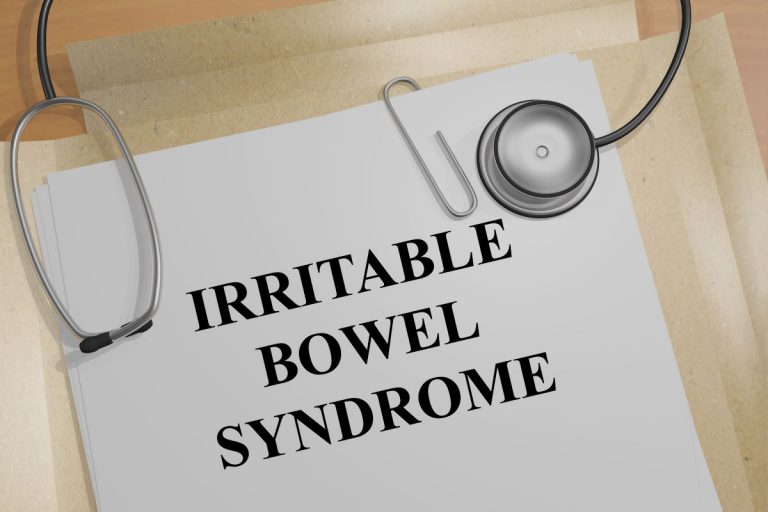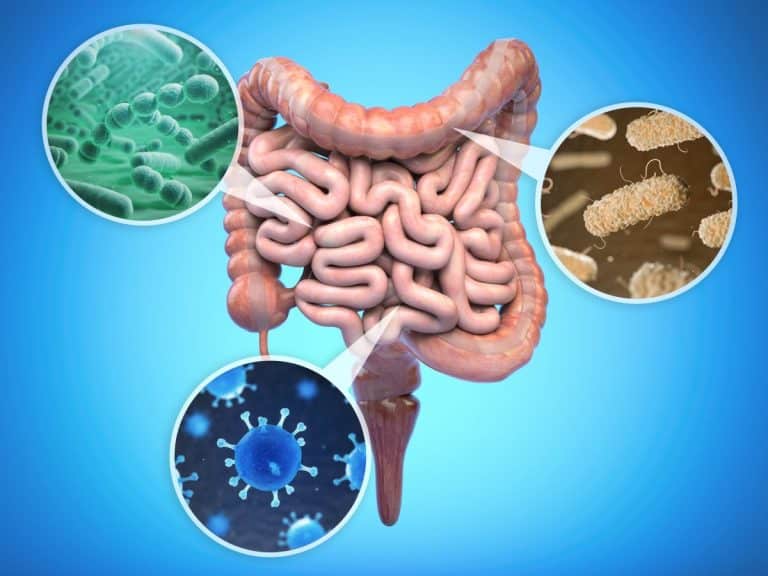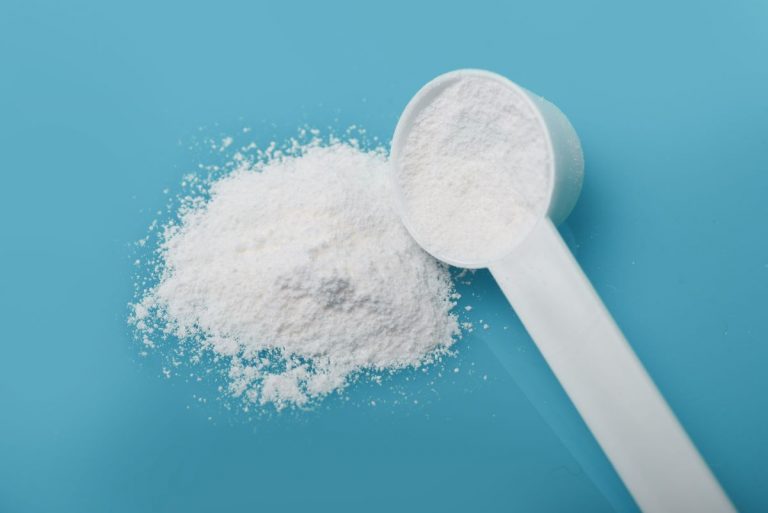Happy Belly: Dietitian Tips to Improve Digestion
Trying to figure out how to get a happy belly?
You just ate a big meal and now you feel bloated.
What tips from a dietitian can improve digestion to decrease bloating and constipation?
In this article, written by registered dietitian nutritionist Amy Archer, you will learn tips to improve digestion before, during, and after meals to create a happy belly!
This information is for educational purposes only. As with any medical advice, always check with your doctor or healthcare professional for personal and age-appropriate recommendations.
Read on to learn more.
Want a copy of this article? Click here to download a copy of this article.
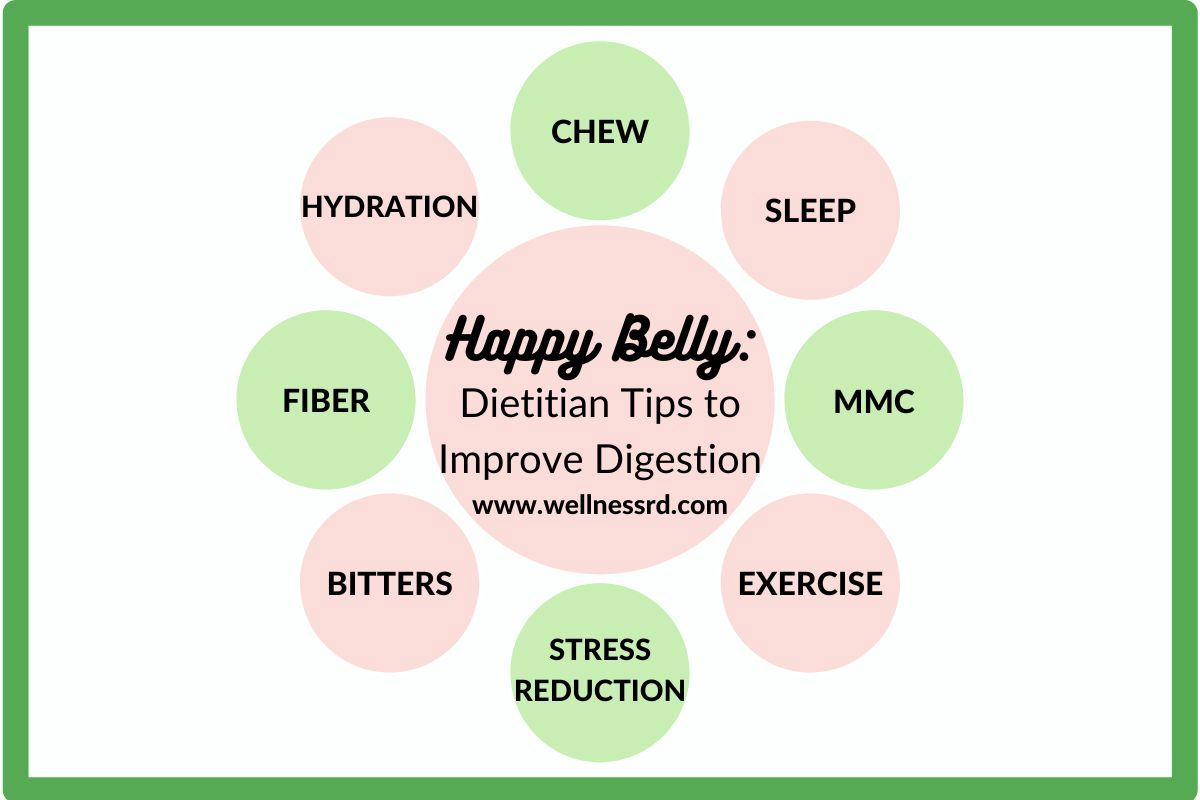
Table of Contents
Happy Belly Tips: Understanding Digestion
Digestion starts in the brain when you start thinking of food and see the beautiful plate of food in front of you. Try deep breathing prior to starting a meal. Then,
- When you chew food, enzymes release to help digestion. Try to chew softer foods 5-10 times and harder foods about 30-40 times.
- In your stomach, the food you eat mixes with stomach juices (acid and enzymes). Did you know that you make 3-4 liters of gastic (stomach) juice each day to help digestion (1)?
- Your small intestine is where you absorb carbohydrates, protein, fat, vitamins, minerals, and water.
- Your liver produces bile, pancreas produces enzymes, and gallbladder stores and releases bile which all help digestion.
- Lastly, the large intestine continues to break down your food and absorb water, electrolytes, and vitamins.
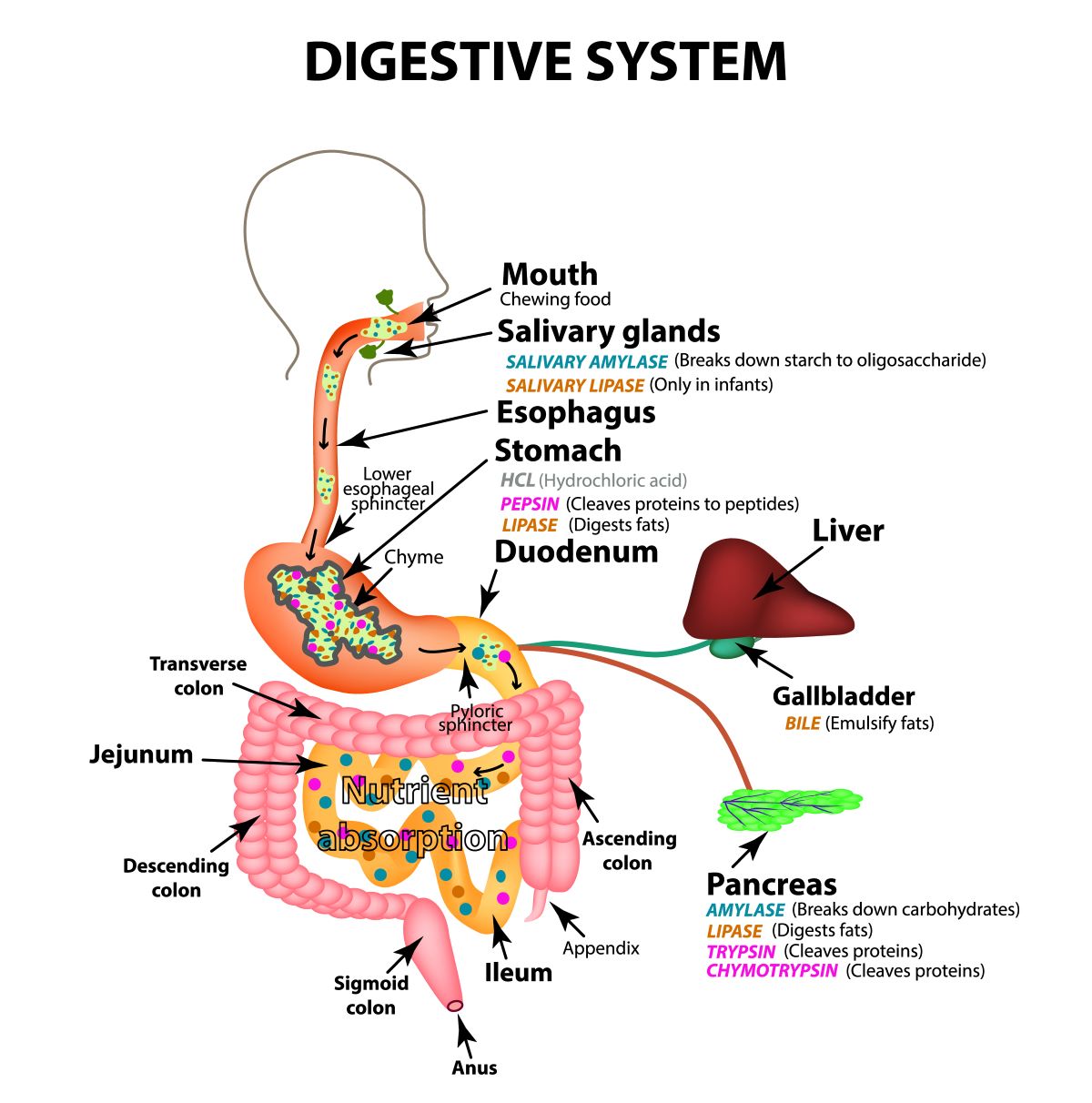
Hydration for Digestion Before Meals
It is important for you to hydrate with fluids to increase saliva and get the enzymes working in your mouth. This will start your digestive process.
Water consumption helps soften stool and decreases constipation (2, 3). Reduced water intake is common with constipation especially in the “hypohydrated state” (not enough fluids) (4).
Drinking water tends to fill you up so may prevent overeating.
How much water should you drink per day? That depends on many factors including age, health conditions, and exercise. Approximate recommended amounts per day are (5, 6):
- 13 cups for men
- 9 cups for women
Remember that about 20% of your water intake comes from eating water-rich foods like fruits and vegetables (so eat up!).
Try drinking water before a meal to improve digestion.
Tips for a Happy Belly During Meals
Reduce Stress by Increasing Mindfulness
Stress can affect your gut and increase your risk of leaky gut and gut disorders like IBS, ulcerative colitis and Crohn’s (7, 8, 9).
Meditation and mindfulness show in studies to improve your gut microbiome and may positively impact gut and brain health (10).
Reduce stress and increase mindfulness by adding meditation or deep breathing to your daily routines.

Chew Food Well
Chewing food well signals your salivary glands to start producing saliva, which contains special enzymes to help you break down food. Studies show self-reported hunger decreases when chewing increases leading to greater satiety and increased gut hormones (11).
A recent study on chewing behavior in 2022 resulted in an improvement in gut microbiota with longer chewing times and may be an effective strategy for controlling blood sugar (12).
Chew your food well to decrease hunger, improve your gut microbiome, and better blood sugar control.
Fiber Rich Foods and Sources for a Happy Belly
Fiber Rich Foods
Prebiotic fibers found in asparagus, bananas, garlic, Jerusalem artichokes, leeks, legumes, and onions can feed your healthy bacteria in the gut. These are food for the good microbes in your gut (13).
Add some prebiotic foods to your meals for a happy belly.
Partially Hydrolyzed Guar Gum (PHGG)
PHGG is an effective treatment for IBS with constipation as shown in recent studies. It also has prebiotic effects improving your gut health (14, 15).
Regular intake of 5-10 grams per day normalizes constipation and diarrhea (16).
Try 5-10 grams per day of PHGG. Always start slow and increase over a couple weeks.
Psyllium
Psyllium is also a soluble fiber that can thicken up your loose stools and reduce constipation.
A 2022 systematic review and meta-analysis resulted in improved constipation when consumed at greater than 10 grams per day of psyllium for 4 weeks (17).
Take some psyllium for better digestion and to get your bowels moving.
Supplements to Help Digestion
There are many supplements that can improve digestion and make for a happy belly. Following the 5 R Protocol and replacing necessary enzymes or acids may improve digestion.
If you are older or have had gut challenges, you may have low stomach acid. In the functional medicine community, the understanding is betaine HCL given at the end or after a meal may help you break down food (18). Bitters such as gentian root and digestive enzymes play a role in improving digestion.
Talk to your healthcare professional about adding some betaine HCL, bitters, or digestive enzymes to improve digestion.
Bitter Foods to Improve Digestion
The mouth recognizes 5 tastes: sweet, salty, sour, bitter and umami (savory) with bitter being the least favorite. Bitter taste is often used to identify toxic foods however, many bitter tasting plant foods are good for digestion (19).
How Do Bitter Foods Help?
Bitters foods improve your digestion, increase the appetite, and help release digestive enzymes to increase nutrient absorption (20)
You may have heard about eating or drinking “bitters” right before meals.
If you do not like bitter foods, try, try again as your taste cells replace every 1-2 months (21).
What are Some Bitter Foods?
Bitter foods include kale, arugula, dandelion greens, citrus, apple cider vinegar, green tea, coffee, and some teas (like ginger, chamomile, peppermint).
Eat more bitter foods to improve your digestion.
What can you do after meals for a happy belly? Let’s dive in.
Happy Belly Tips for After Meals
Light Exercise After Meals
The microbiome supports your health and remember, the gut and brain are connected via the vagus nerve.
Recent research shows that light exercise improves the diversity of your gut and therefore exercise has a positive effect on your gut and brain (22)!
In a 2023 analysis, researchers cite “Exercise might become an effective intervention for disease treatment by regulating the gut microbiome” (23). In other words, exercise may be an important step in healing your gut and treating disease by optimizing your gut microbiome.
Take steps to include exercise in your daily routine to make your belly happy.
Migrating Motor Complex: A Rest Period After Meals for the MMC to Work
What is the MMC? The migrating motor complex involves muscle contractions of the intestine that move food through the intestines (24, 25). Think of it as moving food along and sweeping the intestines clean. Some people refer to it as “housecleaning for the gut”.
The MMC waves occur about every 90 to 120 minutes so, it is important to have a period of fasting between meals of about 3-4 hours to make sure the MMC can do its work. When you eat, the MMC stops.
If your MMC is not working to clean the gut, this may lead to gut bacteria imbalance/overgrowth (SIBO). Some people choose intermittent fasting to allow a long rest period.
Give your gut a rest!
Beneficial Sleep
Lack of sleep plays a role in the health of your gut (26). Improving sleep and managing sleep disorders can lead you to a happy belly.
Make sure you get 7-9 hours of sleep a night for a happy belly.
Final Thoughts
Digestion starts when you start looking at your food (saliva forms).
Stay hydrated before a meal to optimize digestion.
Use mindfulness or deep breathing to reduce stress.
Chew food well and eat slowly (try eating with your non-dominant hand).
Eat fiber rich foods.
Try some partially hydrolyzed guar gum (PHGG) or psyllium.
Some supplements like betaine HCL, bitters, or digestive enzymes may improve digestion.
Bitter foods to include are kale, arugula, dandelion greens and more.
Exercise, sleep, and a non-eating rest period after meals can lead to a happy belly.
Heal your gut naturally for a happy belly.
Always check with your healthcare professional for personalized recommendations.
Read the blog for more information on gut-brain nutrition.
Test don’t guess.
Contact me to schedule an appointment to review your personalized nutritional health.
© Amy Archer RDN, CLT, CHWC

